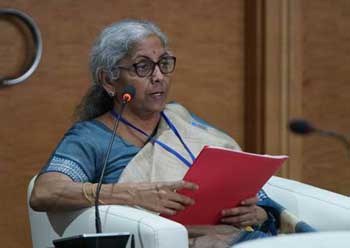INVC NEWS
New Delhi – The central government’s decision to raise the Dearness Allowance (DA) and Dearness Relief (DR) rates has brought much-needed relief to over 1 crore employees and pensioners. On October 9th, the Union Cabinet approved a 3% hike in DA, increasing the rate from 50% to 53%, effective from 2024 July 1st. This increase not only enhances the salaries of central government employees but also offers relief to pensioners grappling with rising inflation.
Understanding the Dearness Allowance Hike
Dearness Allowance is a crucial component of a government employee’s salary aimed at offsetting the impact of inflation. For the vast central government workforce, including pensioners, this latest 3% DA increase will result in a tangible boost in monthly income. The previous DA rate of 50% was adjusted in light of rising inflation, and this update ensures that employees and pensioners are shielded from the economic burden.
The 3% increment will now be added to employees’ base salaries, helping them cope with inflationary pressures. Let’s break down how this impacts employees across different salary brackets.
Impact of the DA Increase on Monthly Salaries
- For employees with a base salary of ₹18,000:
With the DA now at 53%, these employees will see an increase of ₹540 in their monthly pay. - For employees with a base salary of ₹25,000:
Their monthly pay will rise by ₹750 after the DA hike. - For employees with a base salary of ₹35,000:
This group will enjoy a ₹1,050 increase in their monthly salary. - For employees with a base salary of ₹45,000:
Their monthly income will grow by ₹1,350 as a result of the increase. - For employees with a base salary of ₹52,000:
The 3% rise will add ₹1,560 to their monthly pay. - For employees with a base salary of ₹70,000:
This group will benefit from an increase of ₹2,100 per month. - For employees with a base salary of ₹85,500:
These employees will receive an additional ₹2,565 in their monthly salary. - For employees with a base salary of ₹1,00,000:
They will experience an impressive hike of over ₹3,000 each month due to the increased DA.
This rise is a significant relief, especially as inflation continues to erode purchasing power. Employees at different pay levels will see varying degrees of financial benefit, all of which contribute to better managing household expenses.
Why the DA Hike Was Essential
India has been witnessing persistent inflation, with prices for essential commodities rising steadily. To offset this, the central government periodically revises DA and DR rates, ensuring that employees’ purchasing power remains unaffected. The DA hike to 53% was particularly necessary to counterbalance the increased cost of living, especially for those on fixed incomes such as pensioners.
A Delay in Announcement: The Reasons Behind It
It is common practice for the government to announce DA hikes around September, with payments generally being disbursed in October. However, this year, the DA/DR hike was delayed, leading to dissatisfaction among employees and pensioners alike. One reason for the delay, as explained by the government, was the fiscal burden it imposes on the exchequer. The DA hike for millions of employees and pensioners represents a significant cost to the government, and delays in such announcements allow the government to benefit from interest accrued during the interim period.
The Confederation of Central Government Employees and Workers had expressed its discontent with the delay, as highlighted by SB Yadav, the organization’s General Secretary. A letter was sent to Finance Minister Nirmala Sitharaman in late September, urging the timely announcement of DA increases. The general expectation was that the DA hike would be announced during the Navratri and Dussehra festivals, but it wasn’t until October 9th that the official confirmation was made.
How the DA Increase Will Affect Pensioners
Pensioners, especially those dependent on Dearness Relief (DR), will also benefit from this 3% increase. For many retirees, the DR is essential to maintaining their standard of living in the face of inflation. Pensioners will now receive 53% DR, reflecting the same rise that active employees will enjoy. This ensures that pensioners’ incomes, too, are protected from inflationary pressures, offering them much-needed financial relief.
Example of Benefits for Pensioners
- A pensioner with a monthly pension of ₹30,000:
With the 3% increase in DR, their pension will rise by ₹900 per month. - A pensioner with a monthly pension of ₹40,000:
Their DR will now add an extra ₹1,200 per month to their pension. - A pensioner with a monthly pension of ₹50,000:
They will receive an additional ₹1,500 each month as a result of the 3% increase.
The Broader Economic Implications
The DA hike not only benefits central government employees and pensioners but also stimulates the broader economy. Increased disposable income for over 1 crore beneficiaries can lead to higher consumer spending, particularly in sectors like retail, housing, and healthcare. As employees and pensioners spend more on goods and services, demand for various products increases, contributing to economic growth.
However, this boost in salaries and pensions also comes at a cost to the government. The increased DA represents a significant outflow of funds, and with inflationary pressures already weighing on public finances, the government will need to manage its fiscal responsibilities carefully.
The Role of Interest Accrual in DA Delays
One aspect that has come under scrutiny is the government’s tendency to delay DA/DR announcements. These delays, sometimes extending up to three or four months, allow the government to accrue interest on the funds that would otherwise be used for DA disbursement. While this helps the government’s finances, it has been a point of contention among employee unions and pensioners, who argue that timely disbursements should be prioritized, particularly during festive seasons when financial needs increase.













